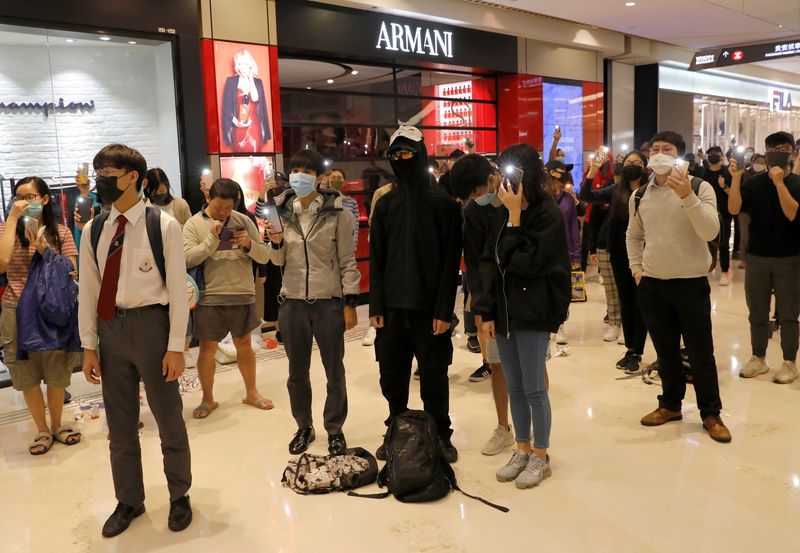This post was originally published on this site
https://i-invdn-com.akamaized.net/trkd-images/LYNXMPEFAR0P6_L.jpg
By Sarah White
PARIS/MILAN (Reuters) – Luxury brands are likely to retreat from Hong Kong as the city is wracked by protests at a time when wealthy Chinese shoppers are staying on the mainland, consultancy Bain said on Thursday, highlighting a shift that is reshaping the global industry.
Sales growth for companies making goods like jewelry, high-end fashion or handbags would come in at the low end of its expectations in 2019 due to the Hong Kong turmoil, according to Bain, which produces closely-followed forecasts for the sector.
Global luxury goods sales were on course to expand to 281 billion euros ($310 billion) in 2019, its study showed, growing 4% at constant currencies, at the bottom end of its previous 4% to 6% forecast and down from 6% growth last year.
The Hong Kong pro-democracy protests weighed on third-quarter sales growth at firms from Cartier owner Richemont (S:) to Germany’s Hugo Boss (DE:), as the flow of visitors dwindled and retailers closed shop temporarily.
Luxury brands, which have around 1,000 stores in the Asian shopping hub, are likely to start shutting some permanently, Bain said.
“Local customers cannot sustain the 1,000 stores in the mid-term,” said Federica Levato, a partner at Bain in Milan.
Luxury sales in Hong Kong, which hit a peak of 10 billion euros in 2013, are likely to drop to 6 billion in 2019, Bain said. This would mean the city that once accounted for around 5% of global sales is now closer to 2%.
And while the demonstrations might be a temporary disruption, a more structural shift is at play in the shopping habits of well-off customers from the Chinese mainland whose Hong Kong spending have long been buttressed sector sales.
Despite China’s economic slowdown, shoppers are continuing to spend heavily on luxury – but they are increasingly staying at home because of a weaker yuan currency that has blunted their overseas firepower. Meanwhile Beijing has cut import duties and sales tax, eroding the competitive price advantage of foreign destinations like Hong Kong, London and New York.
Chinese shoppers now making up 35% of all industry sales – and they are on course to account for 90% of growth in the market this year, Bain said.
“They are willing to go on credit to buy luxury goods,” said Levato. “For the moment we don’t see a true economic risk linked to China.”
In another significant trend for global luxury, Bain said jewelry sales were on track to grow by 9% at constant currencies in 2019, making this one of the fastest-growing pockets of the industry – and highlighting a major driver for LVMH’s $16.2 billion takeover of Tiffany.
Fusion Media or anyone involved with Fusion Media will not accept any liability for loss or damage as a result of reliance on the information including data, quotes, charts and buy/sell signals contained within this website. Please be fully informed regarding the risks and costs associated with trading the financial markets, it is one of the riskiest investment forms possible.

